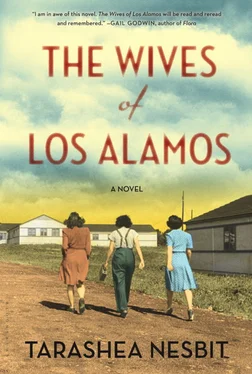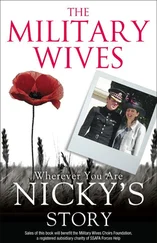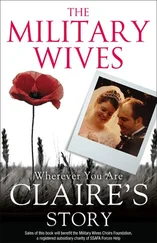THOUGH WE NO longer kept our fingernails clean, many of us still measured our waist each morning. We wanted to accentuate broad, wide shoulders, which we rarely had. We wore trousers and wedges and boots because we were often on the side of the road with blown-out tires. We still had our fur coats, which lost tufts if we were not careful, but most of us were careful because we knew replacements were impossible. Because buttons were popping off our children’s clothes and getting lost in the mud, we switched to zippers.
WE FORGAVE ONE another in public, quickly, even if we did not truly feel the forgiveness in our hearts. And even if we did not fully forgive, we still brought over soup and muffins when their children were sick, because we saw how Geraldine was cut off from afternoon cocktails at Katherine’s for, as Katherine said, flirting with her Charlie ; we saw how Grace was snubbed for not sending a written thank-you note after a dinner party Edna hosted. We knew these isolations would keep us out of knowing things. We did not want to be like Florence, pretending we had to weed in the yard all afternoon because no one invited us over.
WE NEEDED MORE information, or we were concerned our children would not have any other children their age to play with, or we were bored but not lonely, or we were desperately lonely.
WE WENT TO Lisa, one of our old friends from Chicago who happened to be sent here, too, and told her our grudges, one at a time. Katherine couldn’t see why kindergarten would not take her child even though he was not potty-trained. Rose complained that Starla was taking a lead role in the social activities while she was surely the better qualified.
MANY OF US preferred the wives who seemed to have natural curiosity, who asked, How do you think that is constructed? and instead of calling for their husbands to fix the stove, pulled it out from the wall and first attempted to discover how it operated on their own.
AT NIGHT, AS our husbands snored, we read books on loan to us from friends, sent to us by our parents, checked out from the library, mailed to us as part of our Book-of-the-Month Club subscription. We read stories of women who followed their husbands on unknown adventures, like Osa Johnson’s I Married Adventure , about a Kansas teenager who married a photographer. Together they traveled to Borneo, Kenya, and the Congo, then, in their fifties, near retiring, pondering whether they should have had children, their commercial flight to California crashed. Her husband died, but Osa lived another twenty years. Had we married mis adventure? Because we were no longer state citizens, we could not legally vote, get divorced, or obtain a fishing license in the state of New Mexico.
THE STRANGER , THE Little Prince , For Whom the Bell Tolls , Madame Bovary , Native Son , The Grapes of Wrath . Deep within ourselves, we were waiting for something to happen. Our greatest, grandest, most prolonged story: waiting. At times, we became tired from the reading, we wished the next day was already over. But eventually the muscles in our necks relaxed and we slept.
MORNINGS WE WOKE and hoped something would arrive for us, but rarely did anything arrive. Because we felt powerless, we went to war over milk shortages, water shortages, maid services, and unfair housing assignments. We said, Someone with one child should not have more help than someone with two. We said, A family that needs only two bedrooms should not get a home with three . The commissary should carry bottled artichoke hearts, the movie schedule should be changed, the neighbor’s dog snapped at our child and should be put down, we need a shoe repair service, we need faster mail service, the public laundry is overcrowded, the rifle range is too close.
WE THREATENED TO strike unless more maids became available. We tried to master cooking on a temperamental stove but we had no eggs and we howled until the veterinarian brought us some. We commissioned our boys to build us a golf course and when we needed to make a fence around it we stole wire from the Army supply office. We created an orchestra, a square dance club, a jazz band, and a tennis court. We got things by calling a meeting. We got things by being devious.
WHEN THE GROUND trembled and the air smelled like fireworks we knew our husbands, or the military, were trying out explosives. The scent got on our clothes and we could smell sulfur on our hair for days. We tried to control our responses to the sounds in the distance, how they brought the war in close to us and made us worry and we said we would no longer let them do that, even when they rattled our walls, we must not get too upset. We tried to control our impulse to shudder and then one day we noticed we no longer asked What was that? and neither did our children.
WE DREW CLOSER and lowered our voices.
WE BEGAN BY saying what seemed like nice things. Shirley looked pretty in her white gloves today at the commissary. But that compliment suggested other things, that Shirley was stuck-up, that Shirley thought she was too good to be seen with dirty fingernails like the rest of us.
TO MAKE ONESELF the hero through a pregnant pause. We leaned in close to hear more, our eyes alight. And then what happened, and then what happened .
WE MOVED FROM saying nice things to suggesting the not so nice: Did you see the priest whispering in Dorothy’s ear last night? Don’t you think he was standing awfully close?
AND LATER, AS we got to know one another better, as we became bored, as we continued to dislike ourselves, or as we became frustrated with being stuck in this town for so long, or we could no longer hold in the secrets that we did know, we said the obviously not nice.
WE TALKED ABOUT Jack’s wandering eye and William’s wrinkled, high-waisted slacks. One of us said, The General would do anything for a chocolate turtle—I heard he keeps a stockpile of them locked in his safe. One of us said, I smelled liquor on Mrs. Oppenheimer’s breath at breakfast on Tuesday .
WE TOLD THESE stories at each other’s kitchen tables, the same Army-issued square tables and the same stiff chairs we had ourselves. We felt savvy and funny—leaning in to Esther, to Patti—entertaining them with what we had heard, or suspected. It was like the beginning of a love story, these intimacies, and we had missed them since we’d moved. We shifted from talking about people in power—the Director, the General—to talking about husbands, and finally, to talking about one another. We speculated on who was depressed, who was disappointed, who was deranged, who was playing the game of Musical Beds. Mary has not washed her hair in a week. Tom has another family in San Antonio. Lisa disappeared with Jack at the Director’s party last night.
WE TALKED ABOUT who got their hair color from a bottle—insisting we would never—and who let the delivery boy put his hand on her knee. They kept us awake at night, these rumors, and they brought some of us closer together, and they built trust, or destroyed it, and they passed the time. Because of the lack of insulation in the duplexes and apartments, at least one of us could hear which man cussed at his wife or which man slapped his children after dinner. We knew which woman burst into tears when a military patrolman mentioned his concern about the increase in syphilis cases. We knew which woman disappeared when she was accused of telling secrets. We got our information from the GIs, from our maids, from our cooks, and later, from our own children, but we rarely got anything from the female scientists, or from our husbands, who were the ones who actually knew all the real secrets. Everything else we knew in about an hour.
Читать дальше












